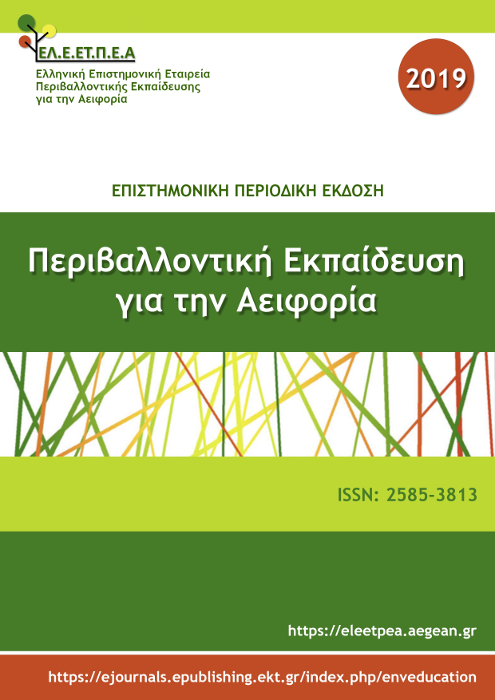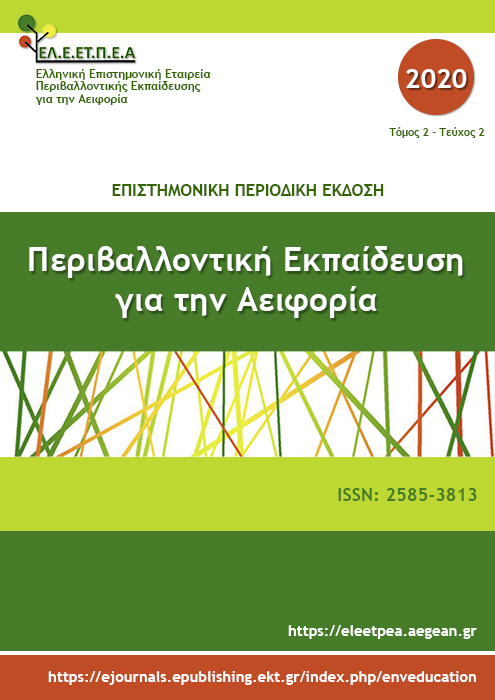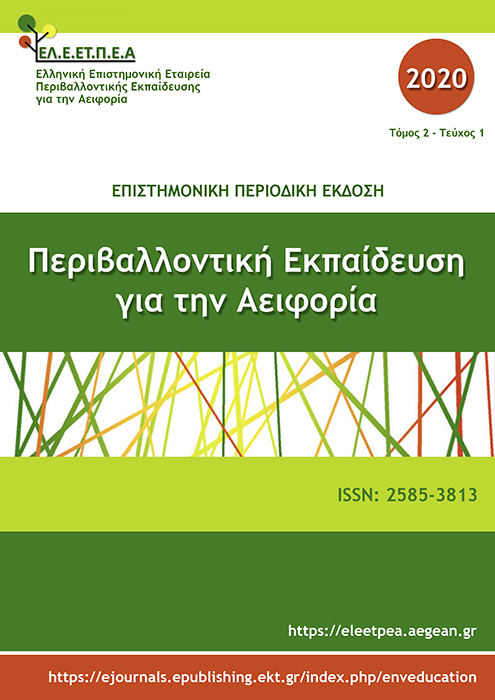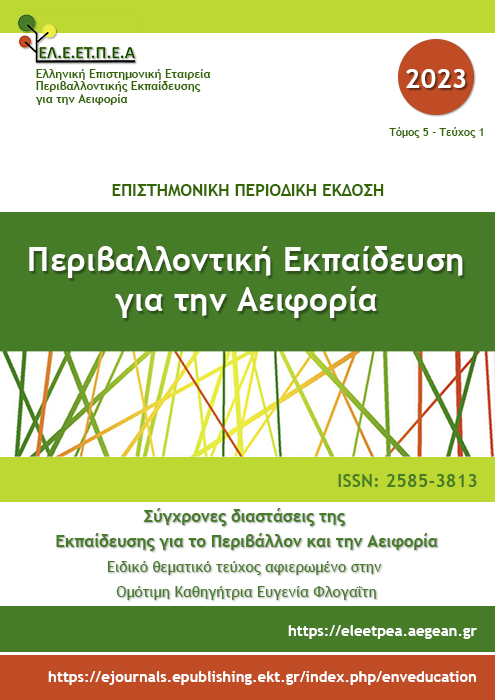Εκπαιδεύοντας τους Θορώ των πόλεων: μία εμπειρία βιωματικής προσέγγισης της μη ανθρώπινης φύσης στο πλαίσιο της περιβαλλοντικής εκπαίδευσης

Περίληψη
Λεπτομέρειες άρθρου
- Πώς να δημιουργήσετε Αναφορές
-
Τσεβρένη Ί. (2019). Εκπαιδεύοντας τους Θορώ των πόλεων: μία εμπειρία βιωματικής προσέγγισης της μη ανθρώπινης φύσης στο πλαίσιο της περιβαλλοντικής εκπαίδευσης. Περιβαλλοντική Εκπαίδευση για την Αειφορία, 1(1), 14–24. https://doi.org/10.12681/ees.16963
- Ενότητα
- Articles

Αυτή η εργασία είναι αδειοδοτημένη υπό το CC Αναφορά Δημιουργού 4.0.
Οι συγγραφείς διατηρούν τα πνευματικά δικαιώματα και παρέχουν στο περιοδικό το δικαίωμα της πρώτης δημοσίευσης μαζί με την αδειοδότηση της εργασίας με CC-BY-NC-SA, που επιτρέπει σε άλλους να μοιράζονται αυτή την εργασία με αναγνώριση του συγγραφικού δικαιώματος και την αρχική δημοσίευση σε αυτό το περιοδικό.




